- Home
- Georgette Heyer
The Transformation of Philip Jettan Page 2
The Transformation of Philip Jettan Read online
Page 2
“A nice welcome you give me, Tom! ‘Tell him to come again at a godly time—I’d not see him if ’twere my brother himself,’ forsooth!”
Thomas hopped across the room and seized both Maurice’s long, thin hands in his plump, chubby ones.
“My dear Maurry! My dear old fellow! I’d no notion ’twas you! My dolt of a lackey—but there! When did you arrive in England?”
“A week ago. I have been at the Pride.”
“A week? What a plague d’ye mean by not coming to me till now, ye rogue?” As he spoke, Tom thrust Maurice into a chair, and himself sat down opposite him, beaming with pleasure.
Maurice leaned back, crossing his legs. A little smile flickered across his mouth, but his eyes were solemn as he answered.
“I had first to see my wife installed in her new home,” he said.
For a moment Tom stared at him.
“Wife? Tare an’ ’ouns, ye don’t waste your time! Where and when did you marry the lady?”
“Three weeks ago, at Paris. Now I have come home to fulfil the last part of the Jettan adage.”
“God ha’ mercy!” ejaculated Thomas. “Not a staid old age, lad! Not you?”
“Something like it,” nodded Maurice. “Wait till you have seen my wife!”
“Ay, I’m waiting,” said Tom. “What’s to do now, then? The country squire, and half a dozen children?”
The grey eyes twinkled.
“Tom, I’ll thank you not to be so coarse.”
“Coarse? Coarse? Gad, Maurice, what’s come over you?”
“I am a married man,” replied Maurice. “As such I have—er—learned to guard my tongue. My wife—”
“Maurry, couldn’t ye call the lady by her name?” begged Tom. “Faith, I can’t bear those two words so often, proud though ye may be of them.”
Maurice flushed slightly and smiled.
“Maria, then. She is a very—sweet, delicate lady.”
“Lord! I’d made up my mind you’d wed a bold, strapping wench with a saucy smile, Maurry!”
“I? Good God, no! My w—Maria is gentle, and meek, and—”
“Ay, ay, Maurry, I know!” hastily interrupted Thomas. “I must see her for myself, so don’t spoil the surprise for me, there’s a good fellow! Now have you breakfasted? No? Then come upstairs with me. Where’s that rascal Moggat? Moggat! Moggat! Ah, there you are! Go and prepare breakfast at once, man! And bring some more chocolate to my room.” He wrapped the voluminous robe about him once more, and, seizing his brother by the arm, led him forth to the staircase.
*
Thus it was that Maurice Jettan brought home his bride. She was a gentle lady, with a sweet disposition; she adored her handsome husband, and duly presented him with a son, Philip. When the babe was shown to him, Tom discovered that he was a true Jettan, with all their characteristics. His father confessed that he saw no resemblance either to himself or to anyone, but he was nevertheless gratified by his brother’s remarks. Tom chuckled mightily and prophesied that young Philip would prove himself a Jettan in more ways than one. He hinted at a youth which should surpass his father’s in brilliancy, and Maurice smiled, looking proudly down at the red, crumpled face.
“And,” concluded Tom, “he’ll have a papa who can advise him in all matters of fashion better than any man I know. Why, Maurice, you will show him the fashionable world! You must take care you do not stagnate here. You must not fall out of Society.”
Maurice was still smiling down at his offspring.
“No. I must not fall out, Tom. The youngster will need me later on.”
*
For five years he continued to take his place in London Society, but he found that the desire for excitement and gaiety was growing less and less within him. The death of Maria gave this desire the coup de grâce. Maurice took his small son down to the Pride as soon as he had recovered from the first shock of bereavement, and after that for some years he rarely visited London, except sometimes to see his brother or his tailor. Then he seemed to grow restless again, and started to spend more time with Tom. Bit by bit he re-entered the world he had quitted, yet never did he give himself up to it as once he had done. The Pride seemed to call him, and little Philip held his heart with both hands. Thereafter he spent his time between London and the Pride. When he felt restless, he packed his bags and flitted either to London or to Paris; when the restlessness had passed, back he came to the Pride, there to spend two or three peaceful months.
When Philip was eighteen, he took him to London. Philip was very thoroughly bored. Sir Maurice concluded that he was too young to be introduced into Society, and he sent him back to the country, thinking that in two or three years’ time the lad would be only too anxious to leave it.
But the years slipped by, and Philip showed no desire to follow in his father’s footsteps. He refused to go on the Grand Tour; he cared nothing for Dress or Fashionable Manners; he despised the life of Courts; he preferred to remain in the country, usurping, to a great extent, his father’s position as squire. He was now some twenty-three years old, tall and handsome, but, as his father told his uncle, “an unpolished cub.”
TWO
IN WHICH IS PRESENTED MISTRESS CLEONE CHARTERIS
A WHILE back I spoke of three gentlemen who built their homes round Little Fittledean. Of one I said but little, of the second I spoke at length and to the tune of one whole chapter. It now behoves me to mention the third gentleman, who chose his site on the outskirts of the village, some two miles from Jettan’s Pride, and to the east. To reach it you must walk along the main street until the cottages grow sparse and yet more sparse, and the cobblestones and pavement cease altogether. The street turns then into a lane with trees flanking it and grass growing to the sides. A few steps further, and the moss-covered roof of Sharley House peeps above a high holly hedge which screens the place from the passer-by.
There lived Mr. Charteris, and his father and grandfather before him. Mr. Charteris was the happy possessor of a wife and a daughter. It is with the daughter that I am most concerned.
Her name was Cleone, and she was very lovely. She had thick gold curls, eyes of cornflower blue, and a pair of red lips that pouted or smiled in equal fascination. She was just eighteen, and the joy and despair of all the young men of the countryside. Particularly was she the despair of Mr. Philip Jettan.
Philip was head over ears in love with Cleone. He had been so ever since she returned from the convent where she had received a slight education. Before her departure for this convent, she and Philip, James and Jennifer Winton, had played together and quarrelled together since any of them could walk. Then Cleone went away to acquire polish, and the two boys thought very little more about her, until she returned, and then they thought of nothing else but her. The romping playfellow was gone for ever, but in her place was a Vision. Philip and James began to eye one another askance.
Delighted by the new state of affairs, Cleone queened it right royally, and played one young man against the other. But it was not long before she found herself thinking far more about Mr. Jettan than was seemly. He began to haunt her dreams, and when he came to visit the house her heart fluttered a little and showed a tendency to jump into her throat.
Cleone was stern with her heart, for there was much in Mr. Jettan that did not meet with her approval. However masterful and handsome he might be—and Philip was both—he was distressingly boorish in many ways. Before her return to Sharley House Cleone had spent a few months with her aunt, who lived in Town. Several men had made very elegant love to her and showered compliments about her golden head. She had not cared the snap of her fingers for any one of them, but their graceful homage was very gratifying. Philip’s speech was direct and purposeful, and his compliments were never neat. His clothes also left much to be desired. Cleone had an eye for colour and style; she liked her cavaliers to be à la mode. Sir Matthew Trelawney, for instance, had affected the most wonderful stockings, clocked with butterflies; Frederick King wore so excellen
tly fitting a coat that, it was said, he required three men to ease him into it. Philip’s coat was made for comfort; he would have scorned the stockings of Matthew Trelawney. He even refused to buy a wig, but wore his own brown hair brushed back from his face and tied loosely at his neck with a piece of black ribbon. No powder, no curls, unpolished nails, and an unpainted face—guiltless, too, of even the smallest patch—it was, thought Cleone, enough to make one weep. Nevertheless, she did not weep, because, for one thing, it would have made her eyes red, and another, it would be of very little use. Philip must be reformed, since she—well, since she did not dislike him.
At the present time Philip had just returned from Town, whither he had been sent by his father, ostensibly to transact some business concerning the estate, but really that his unfashionable soul might succumb to the delights of Town. Philip was not aware of this secret purpose, but Cleone knew all about it. She was very fond of Sir Maurice, and he of her. When Sir Maurice saw which way Philip looked for a wife, he was pleased enough, although a Jettan might have cast his eyes much higher. But Sir Maurice, mindful of the old adage, was content to let things run their course. All that worried him was the apparent obduracy of his son in the matter of the first prophecy. He loved Philip, he did not wish to lose him, he liked his companionship, but—“By God, sir, you are a damned dull dog!”
At that young Philip’s straight brows drew close over the bridge of his nose, only to relax again as he smiled.
“Well, sir, I hold two gay dogs in the family to be enough.”
Sir Maurice’s mouth quivered responsively.
“What’s that, Philip? Do you seek to reprove me?”
“Not a whit, sir. You are you, but I—am I.”
“So it seems,” said his father. “And you being yourself have fallen in love with a mighty pretty child; still being yourself, you are like to be left disconsolate.”
Philip had flushed slightly at the reference to Cleone. The end of the sentence left him frowning.
“What mean you, sir?”
The shrewd grey eyes, so like his own, regarded him pityingly.
“Little Mistress Cleone will have none of you an you fail to mend your ways, my son. Do you not know it? What has that dainty piece to do with a raw clodhopper like yourself?”
Philip answered low.
“If Mistress Cleone gives me her love it will be for me as I am. She is worthy a man, not a powdered, ruffled beau.”
“A man! Sacré tonnerre, ’tis what you are, hein? Philip, child, get you to Town to your uncle and buy a wig.”
“No, sir, I thank you. I shall do very well without a wig.”
Sir Maurice drove his cane downwards at the floor in exasperation.
“Mille diables! You’ll to Town as I say, defiant boy! You may finish the business with that scoundrel Jenkins while you are about it!”
Philip nodded.
“That I will do, sir, since you wish it.”
“Bah!” retorted his father.
*
He had gone; now he had come back, the business details settled to his satisfaction, but with no wig. Sir Maurice was pleased to see him again, more pleased than he appeared, as Philip was well aware. He listened to what his son had to tell him of Tom Jettan, failed to glean any of the latest society gossip, and dismissed Philip from his presence.
Half an hour later Philip rode in at the gates of Sharley House, sitting straight in his saddle, a pulse in his throat throbbing in anticipation.
Cleone saw him coming. She was seated in the parlour window, embroidering in a languid fashion. Truth to tell, she was tired of her own company and not at all averse from seeing Philip. As he passed the window she bent forward a little, smiling down at him. Philip saw her at once; indeed, he had been eyeing every window of the warm, red house in the hope that she might be sitting in one. He reined in his horse and bowed to her, hat in hand.
Cleone opened the casement wider, leaning over the sill, her golden curls falling forward under the strings of her cap.
“Why, sir, are you back already?” she asked, dimpling.
“Already!” he echoed. “It has been years! Ten years, Cleone!”
“Pooh!” she said. “Ten days—not a moment more!”
“Is that all it has seemed to you?” he said.
Cleone’s cheek became faintly tinged with pink.
“What more?” she retorted. “’Tis all it is!”
Into Philip’s eyes came a gleam of triumph.
“Aha! You’ve counted, then! Oh, Cleone!”
The roguish look fled.
“Oh!” cried Cleone, pouting. “How—how—monstrous—”
“Monstrous what, dear Cleone?”
“Impudent!” she ended. “I declare I won’t see you!” As if to add weight to this statement, she shut the casement and moved away into the room.
Presently, however, she relented, and tripped downstairs to the withdrawing-room, where she found Mr. Jettan paying his respects to her mamma. She curtseyed very demurely, allowed him to kiss the tips of her fingers, and seated herself beside Madam Charteris.
Madam patted her hand.
“Well, child, here is Philip returned from Town with not a word to tell us of his gaiety!”
Cleone raised her eyes to survey Philip.
“Mamma, there is naught to tell. Philip is such a staid, sober person.”
“Tut-tut!” said her mother. “Now, Philip, tell us all! Did you not meet one beauty to whom you lost your heart?”
“No, madam,” answered Philip. “The painted society dames attract me not at all.” His eyes rested on Cleone as he spoke.
“I dare say you’ve not yet heard the news?” Cleone said, after a slight pause. “Or did Sir Maurice tell you?”
“No—that is, I do not know. What is it? Good news?”
“It remains to be seen,” she replied. “’Tis that Mr. Bancroft is to return! What think you of that?”
Philip stiffened.
“Bancroft? Sir Harold’s son?”
“Yes, Henry Bancroft. Is it not exciting? Only think—he has been away nigh on eight years! Why, he must be—” she began to count on her rosy-tipped fingers “—twenty-six, or twenty-seven. Oh, a man! I do so wonder what he is like now!”
“H’m!” remarked Philip. His voice held no enthusiasm. “What does he want here?”
Cleone’s long lashes fluttered down to hide the laugh in her eyes.
“To see his papa, of course. After so many years!”
Philip gave vent to a sound very like a snort.
“I’ll wager there’s a more potent reason! Else had he come home ere now.”
“Well, I will tell you. Papa rode over to Great Fittledean two days ago, and he found Sir Harold mightily amused, did he not, Mamma?”
Madam Charteris assented vaguely. She was stitching at a length of satin, content to drop out of the conversation.
“Yes. It seems that Henry—”
“Who?” Philip straightened in his chair.
“Mr. Bancroft,” said Cleone. A smile trembled on her lips. “It seems that Mr. Bancroft has had occasion to fight a duel. Is it not too dreadful?”
Philip agreed with more heartiness than he had yet shown.
“I am sure I do not know why gentlemen must fight. ’Tis very terrible, I think. But, of course, ’tis monstrous gallant and exciting. And poor Mr. Bancroft has been advised to leave London for a while, because some great personage is angered. Papa did not say who was the gentleman he fought, but Sir Harold was vastly amused.” She glanced up at Philip, in time to catch sight of the scornful frown on his face. “Oh, Philip, do you know? Have you perhaps heard?”
“No one who has been in Town this last week could fail to have heard,” said Philip shortly. Then, very abruptly, he changed the subject.
*
When Philip came back to the Pride it was close on the dinner hour. He walked slowly upstairs to change his clothes, for on that point Sir Maurice was obdurate. He would n
ot allow buckskins or riding-boots at his table. He himself was fastidious to a fault. Every evening he donned stiff satins and velvets; his thin face was painted, powdered and patched; his wig tied with great precision in the nape of his neck. He walked now with a stick, but his carriage was still fairly upright. The stick was, as Philip told him, a mere affectation.
Philip was rather silent during the first part of the meal, but when the lackeys left the room, and Sir Maurice pushed the port towards him, he spoke suddenly, as if the words had hovered on his tongue for some time.
“Father, do you hear that Bancroft is to return?”
Sir Maurice selected a nut from the dish before him, cracking it between his long, white fingers.
“I believe someone told me. What of it?”
“You said nothing of it to me.”
The grey eyes lifted.
“Is he a friend of yours? I did not know.”
“A friend!” Philip set his glass down with a snap. “Hardly, sir!”
“Now what’s to do?” asked his father. “Why the scorn?”
“Sir, if you could but hear the gossip about him!”
“I have no doubt I should be vastly entertained,” said Sir Maurice. “What’s the tale?”
“The fellow is for ever embroiling himself in some low quarrel. This time it is Lady Marchand. Faugh!”
“Lady Marchand? Not Dolly Marchand?”
“I believe so. Why, sir, do you know her?”
“I—er—knew her mother. Tell me, is she as charming?”
“As I know neither her mother, nor Lady Marchand—”
Sir Maurice sighed.
“No. Of course not. Go on.”
“It’s a damned sordid tale, sir, and I’ll spare you the details. Lord Marchand and Bancroft fought out at Ipswich. Bancroft wounded him in the lung, and ’tis said he’ll not recover.”
“Clumsy,” remarked Sir Maurice. “So Bancroft retires?”
“The Prince of Wales is furious, as well he might be. And Bancroft brings himself and his morals here.”
A faint smile hovered on Sir Maurice’s lips.
“And Mr. Jettan is righteously indignant. From which I gather that Mistress Cleone is prepared to welcome this slayer of hearts. You’d best have bought a wig, Philip.”

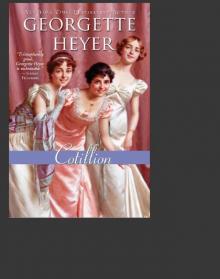 Cotillion
Cotillion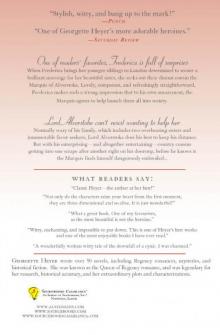 Frederica
Frederica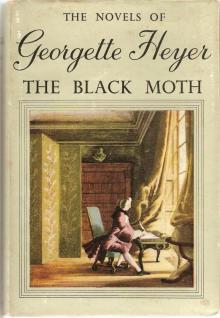 The Black Moth: A Romance of the XVIIIth Century
The Black Moth: A Romance of the XVIIIth Century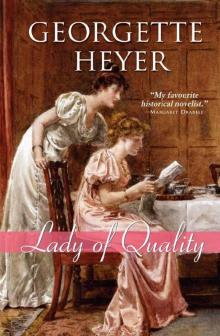 Lady of Quality
Lady of Quality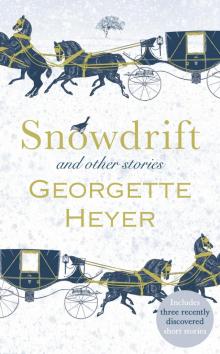 Snowdrift and Other Stories
Snowdrift and Other Stories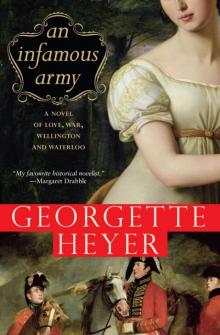 An Infamous Army
An Infamous Army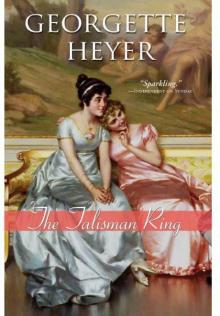 The Talisman Ring
The Talisman Ring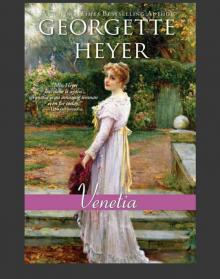 Venetia
Venetia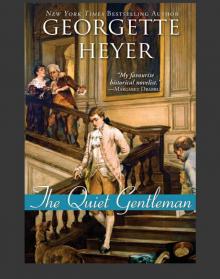 The Quiet Gentleman
The Quiet Gentleman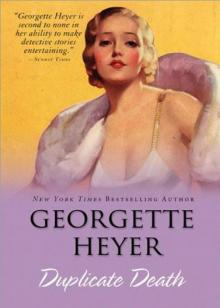 Duplicate Death
Duplicate Death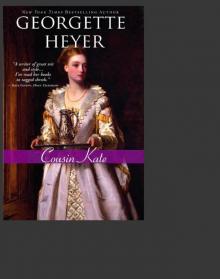 Cousin Kate
Cousin Kate Black Sheep
Black Sheep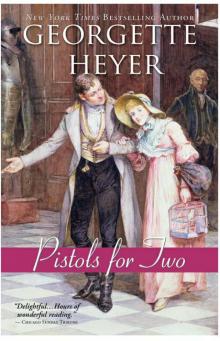 Pistols for Two
Pistols for Two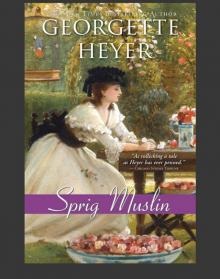 Sprig Muslin
Sprig Muslin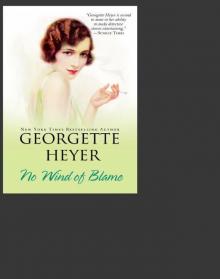 No Wind of Blame
No Wind of Blame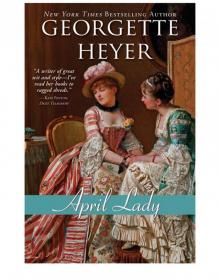 April Lady
April Lady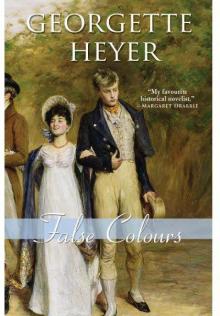 False Colours
False Colours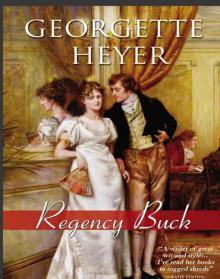 Regency Buck
Regency Buck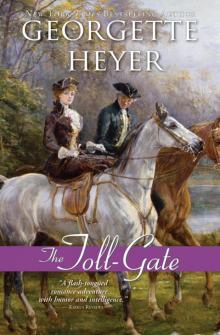 The Toll-Gate
The Toll-Gate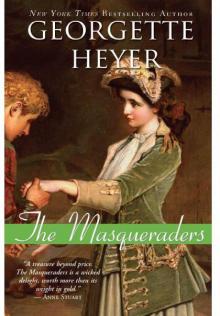 The Masqueraders
The Masqueraders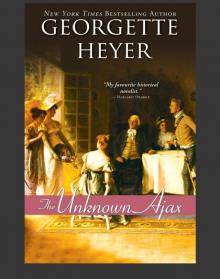 The Unknown Ajax
The Unknown Ajax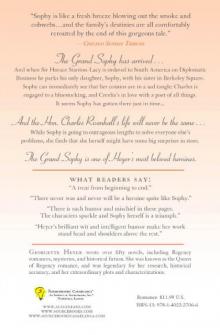 The Grand Sophy
The Grand Sophy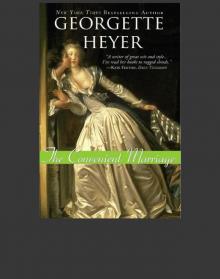 The Convenient Marriage
The Convenient Marriage Faro's Daughter
Faro's Daughter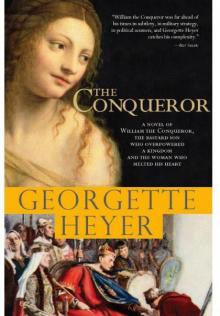 The Conqueror
The Conqueror The Foundling
The Foundling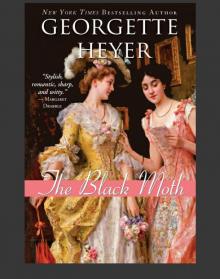 The Black Moth
The Black Moth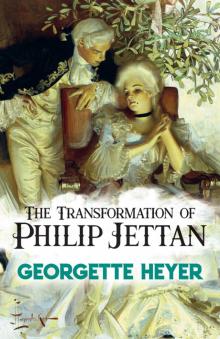 The Transformation of Philip Jettan
The Transformation of Philip Jettan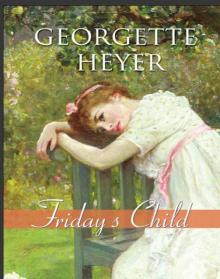 Friday's Child
Friday's Child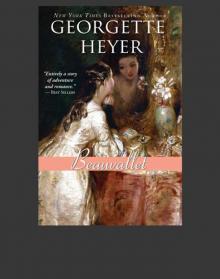 Beauvallet
Beauvallet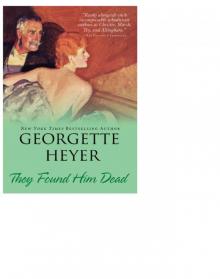 They Found Him Dead
They Found Him Dead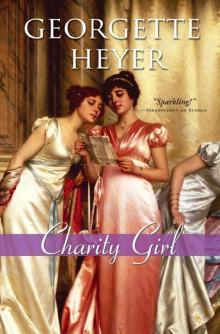 Charity Girl
Charity Girl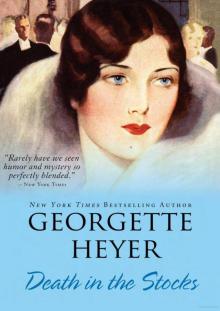 Death in the Stocks: Merely Murder
Death in the Stocks: Merely Murder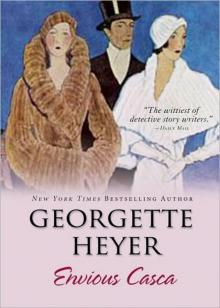 Envious Casca
Envious Casca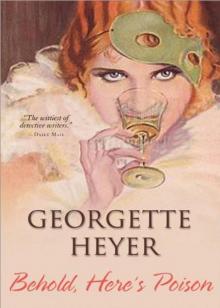 Behold, Here's Poison
Behold, Here's Poison Arabella
Arabella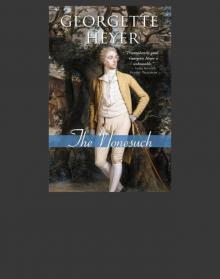 The Nonesuch
The Nonesuch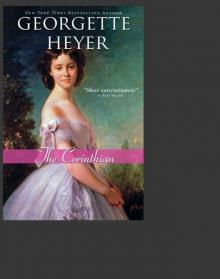 The Corinthian
The Corinthian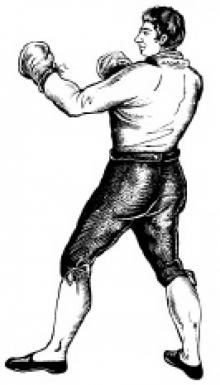 Jennifer Kloester
Jennifer Kloester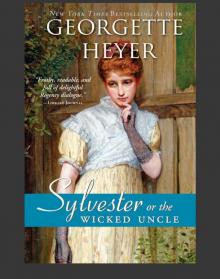 Sylvester
Sylvester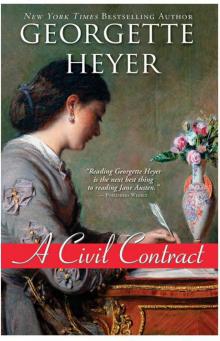 A Civil Contract
A Civil Contract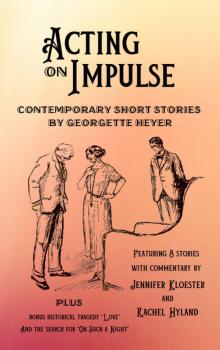 Acting on Impulse
Acting on Impulse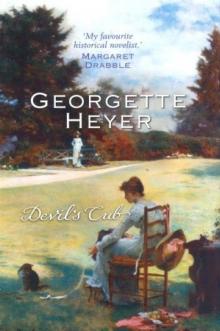 Devil’s Cub at-2
Devil’s Cub at-2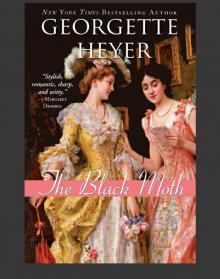 Black Moth
Black Moth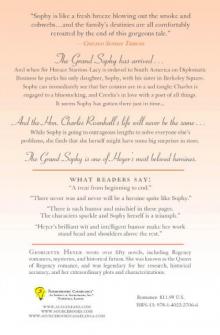 Grand Sophy
Grand Sophy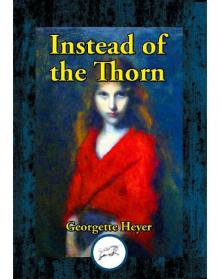 Instead of the Thorn
Instead of the Thorn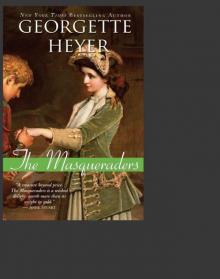 Masqueraders
Masqueraders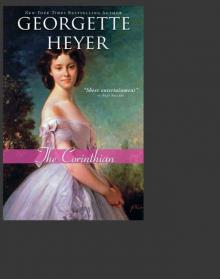 Corinthian
Corinthian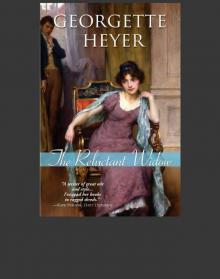 Reluctant Widow
Reluctant Widow